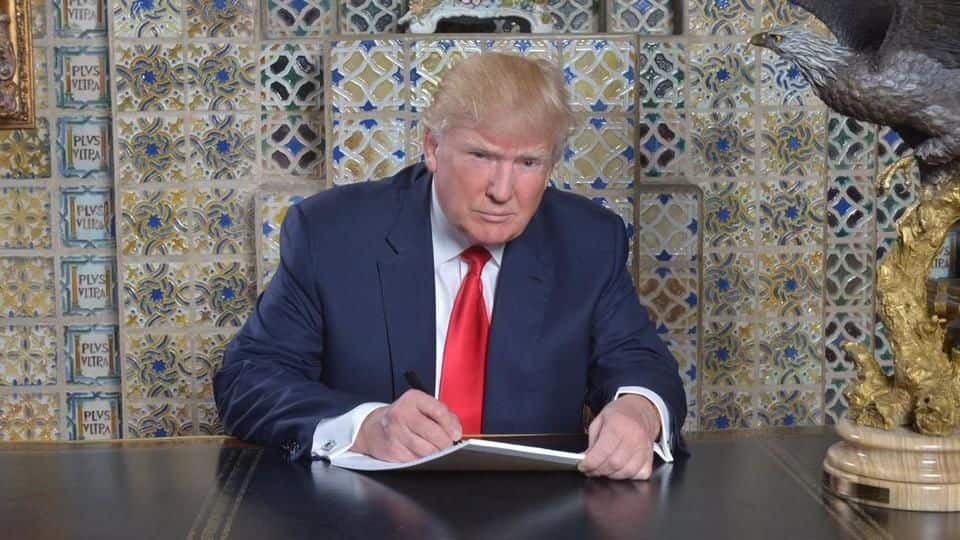
Supreme Court upholds Trump's travel ban, restrictions come into effect
What's the story
In a major win for Donald Trump, the US Supreme Court has upheld the president's third travel ban which denies the citizens of six predominantly-Muslim countries, Venezuela and North Korea, from entering the US.
This enables the ban to take effect in its entirety.
However, a provision allowing travelers with "bona fide" links inside the US have been exempted.
Here's more about it.
Background
Trump's travel ban: What has happened till now?
In January 2017, Trump signed an executive order restricting citizens from seven Muslim-majority countries (Iran, Iraq, Libya, Somalia, Sudan, Syria, and Yemen) from entering the US.
This was widely perceived as a "Muslim travel ban" and invited significant criticism and legal challenges.
While subsequent orders excluded Iraq and Sudan, the ban was expanded to include Chad, Venezuela, and North Korea in September 2017.
25 Sep 2017
North Korea, Venezuela and Chad brought under Trump's travel ban
On September 25, the US brought Venezuela, North Korea, and Chad under Trump's controversial travel ban.
President Donald Trump conveyed this through a presidential proclamation.
The three countries were included in the list on refusal to cooperate with the US.
Trump had earlier banned citizens from seven Muslim-majority countries: Iran, Iraq, Syria, Somalia, Sudan, Yemen, and Libya from traveling to the US.
Ruling
What did the Supreme Court rule?
Seven out of nine judges in the court voted in favor of lifting multiple injunctions imposed by lower courts on Trump's directive, allowing it come into effect pending appeal.
However, travel bans on citizens of Iran, Libya, Somalia, Syria and Yemen still faces legal challenges.
The court appears to have agreed with the Trump administration's arguments that the ban is necessitated on national-security grounds.
Information
Travelers having bona fide relations in America are exempted
A bona fide relationship includes individuals coming to the US to live with or visit a family member, to study, to work, or are lecturers invited to address an American audience. Grandparents, grandchildren, aunts, uncles, nieces, nephews, in-laws and extended family aren't considered "bona fide."
Lower court injunctions
How have lower courts dealt with Trump's travel ban?
Multiple courts across the US have previously issued injunctions against the travel ban on various legal grounds.
More recently, a Hawaii court ruled that there wasn't convincing evidence stating that the entry of citizens from these countries poses a major national security threat.
The court also ruled that the ban "plainly discriminates based on nationality" in violation of "the founding principles of this nation."
Conclusion
What does the latest ruling mean?
The ruling represents a significant victory for the Trump administration, which has been aggressively vouching for the president's rights to issue a travel ban.
This allows for the order to be enforced even as challenges to it move up through the legal system.
The SC may even proceed to uphold similar bans in the future.